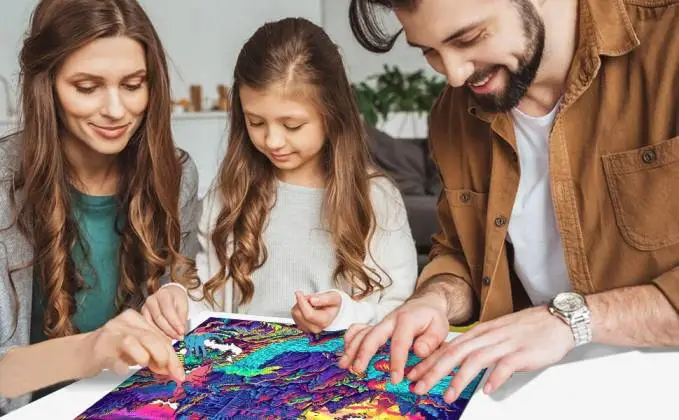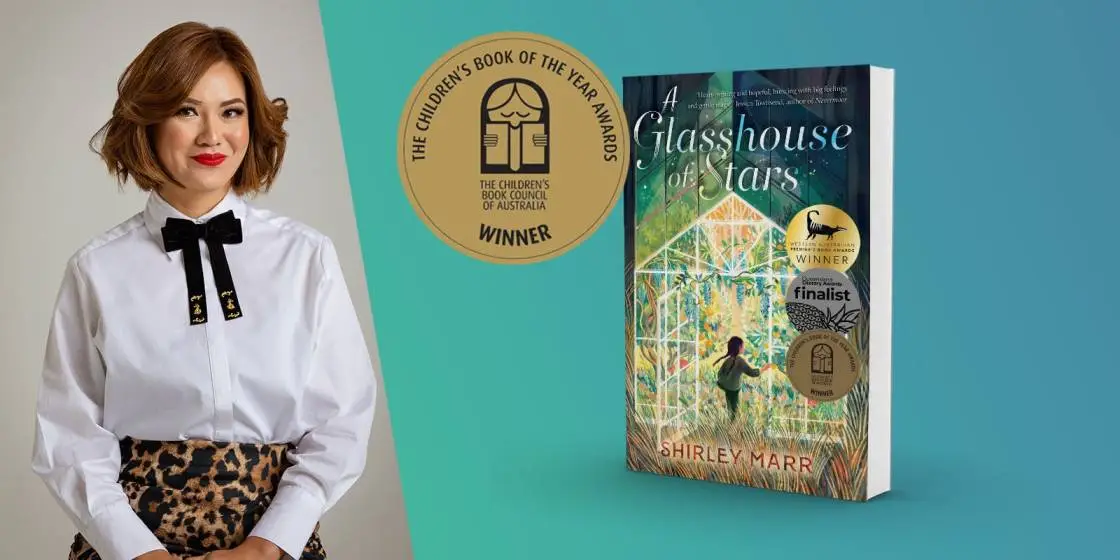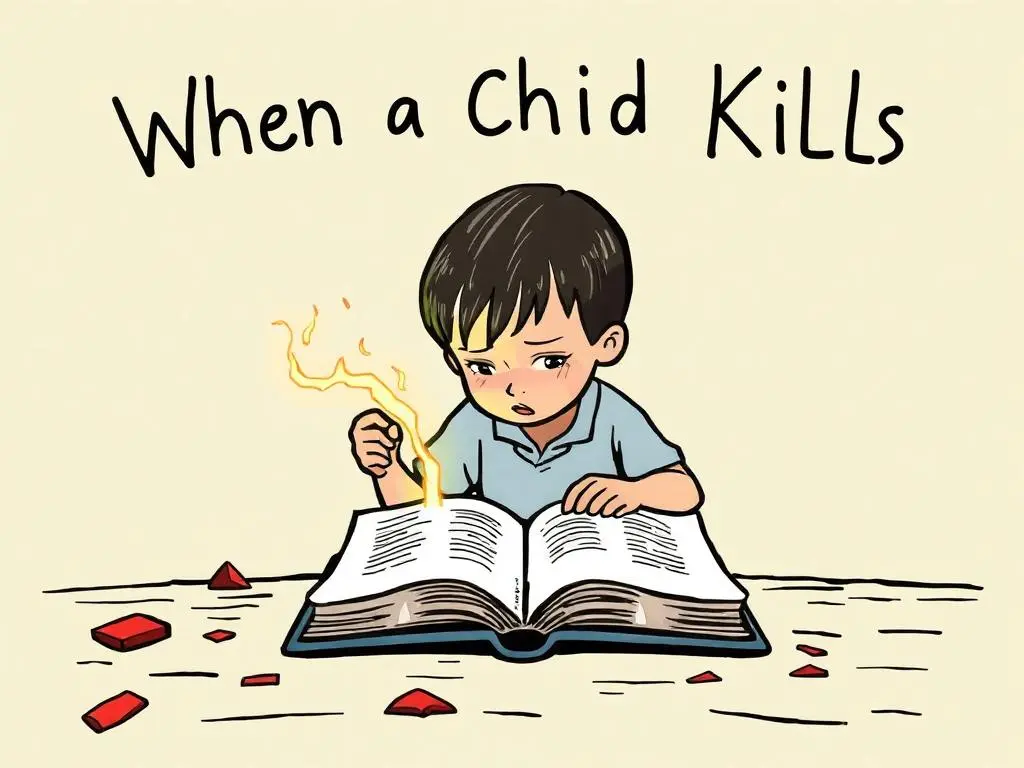Afterlife, by Julia Alvarez: An Excerpt
one
Here there be dragons
Today, the magnet on her fridge proves prophetic: Even creatures of habit can sometimes be forgetful.
You said it, Antonia agrees. She has just poured orange juice into the coffee in the mug she brought back from one of the fancier hotels. Must have been a special occasion for Sam to have chosen to stay there and for her to have allowed the expense.
You’d think you were born with money in your family, she liked to tease him.
I never had it to begin with, so I’m not afraid to spend it, Sam responded. He was always quick with a comeback. Used to get him in trouble with his dad growing up. Being fresh, it was called back then. Oh, the stories he told her.
[ Return to the review of “Afterlife.” ]
Sam spoiled her, or tried to, and got scolded as his thanks—but it was the kind of scolding that must’ve made him suspect she liked being made something of.
There’ll be no more of that now.
She is keeping to her routines, walking a narrow path through the loss—not allowing her thoughts to stray. Occasionally, she takes sips of sorrow, afraid the big wave might wash her away. Widows leaping into a husband’s pyre, mothers jumping into a child’s grave. She has taught those stories.
Today, like every other day, you wake up empty and frightened, she quotes to herself as she looks at her reflection in the mirror in the morning. Her beloved Rumi no longer able to plug the holes.
Late afternoons as the day wanes, in bed in the middle of the night, in spite of her efforts, she finds herself at the outer edge where, in the old maps, the world drops off, and beyond is terra incognita, sea serpents, the Leviathan—Here There Be Dragons.
Countless times a day, and night, she pulls herself back from this edge. If not for herself, then for the others: her three sisters, a few old aunties, nieces and nephews. Her circle used to be wider. But she has had to pull in, contain the damage, keep breathing.
As she often tells her sister Izzy, always in crisis, arriving for visits with shopping bags full of gifts and a broken heart: the best thing you can give the people who love you is to take care of yourself so you don’t become a burden on them. No wonder Izzy’s ringtone for Antonia is church bells.
Actually, all the sisters have followed Izzy’s lead and assigned that ringtone to Antonia. The secret got out. The secret always gets out in the sisterhood. Our Lady of Pronouncements, Mona said by way of explanation. Good old Mo-mo, no hairs on her tongue—one of their mother’s Dominican sayings. Tilly was kinder. Sort of. It’s because you started going to Sam’s church. It’s how Tilly used to describe their denomination, to avoid using the word Christian. Now she avoids Sam’s name. Your church. As if Antonia would forget that Sam is gone unless someone reminds her.
They’re just jealous, was Sam’s theory about the ringtone profiling. All your years of teaching. You’ve picked up a lot of wisdom. A head full of chestnuts.
Full of B.S. That’s what the sisterhood would say.
She empties out the ruined coffee and starts over.
The little phone she is carrying in her pocket begins ringing. She hasn’t set special ringtones for anyone, except Mona, who insisted on dogs barking. Not just any dogs, but Mona’s five rescues, which she set up on Antonia’s phone.
Today it’s Tilly calling. A few days ago, Mona. Izzy weaves in and out. The sisterhood checking in on her. You take her this morning. I’ll call her this weekend. The frequency has dropped off the last few months, but it has been sweet.
How are you? they ask. How are you doing?
Come visit, they all say. Knowing she won’t take them up on it. She is the sister who hates traveling even during the best of times.
It’s beautiful here, Tilly brags. Why do you think it’s called the Heartland? They have an ongoing rivalry. Vermont or Illinois. Who gets spring first, who has the worst snowfalls?
As she chats with her sister, Antonia hears plates clattering in the background. Tilly cannot abide being still. What are you doing? Antonia confronts her sister.
What do you mean what am I doing? Those sounds.
What sounds?
How easily they slip into bickering. It’s almost a relief when Tilly brings up Izzy. I’m worried, Tilly says. Izzy has been increasingly erratic. She is selling her house just outside of Boston, or not—they can’t be sure. She is sleeping in friends’ spare rooms or on their couches while she remodels her house.
But you’re selling it, aren’t you? the sisters try to reason with her.
It’ll bring in more money if it’s perfect.
Perfection takes time, not to mention money, which Izzy is always saying she doesn’t have. Didn’t she stop seeing her shrink because she said it was too much money? But you have insurance, don’t you? The sisters again, the Dominican Greek chorus they become when some sister, usually Izzy, is headed for a downfall.
I don’t want some insurance company knowing I’m going to a shrink. A shrink seeing a shrink! It would ruin my professional standing.
That bridge was burned a while back, according to Mona. Izzy is no longer at the mental health practice she helped start. Even master sleuth Mona isn’t sure what all came down.
And she’s also stopped the meds she was on, Tilly adds. Mona says you can’t do that with those kind of meds. Tilly sighs, eerily still for a change, and then says, They had a huge fight. Those two, I tell you.
Antonia imagines Tilly shaking her head. It is odd that Izzy and Mona, the two therapists in the family, can’t apply their professional skills to getting along. You said it, Antonia agrees, so as not to append something negative and quotable that will get back to the others, bring on more bickering.
Anyhow, sister, screw them. How are you doing?
I’m okay. Antonia’s mantra of the last year. Somewhere she read that okay and Coca-Cola are the two most universally understood words. It depresses her to think the ties that bind are so flimsy. Even silence would be better.
But silence is all she gets when she addresses Sam these days. What she wouldn’t give for his voice coming from the afterlife, assuring her that he’s okay.
Her neighbor Roger is at the door. If I can be of any help? he offers. Kind of late for that, she thinks. Sam’s death was last June. Maybe the news just now reached him, like the light from stars?
[ Return to the review of “Afterlife.” ]
I’m good, she tells Roger. A turn of phrase borrowed from her students. She always feels slightly bogus parroting them, as in her first years speaking English, tossing out an idiom, pretending she’d been born to it. Dream on. A phrase from her own student days.
Been hauling over to Ferrisburgh. Got to take what comes. Pays the bills anyhow. Roger is partial to sentence fragments; Antonia has to supply the rest. Every encounter, homework, a fill-in-the-blank test.
Broken English. The phrase once leveled at her and her sisters. She mended her broken pieces and ended up teaching Americans their own language, four decades total, three at the nearby college. What now, now that she has retired?
We shall see, her mother used to say. Que será, será. Been meaning to stop. Them gutters—Roger nods at the pipe running the length of the house, right under the roof, full of twigs, leaves. Runoff from the roof, stuff collects.
I thought those were nests, Antonia says, laughing. Of course, she didn’t really think so, but Roger gets such a kick out of knowing more than the smarty-pants professors over at the college. One of her ways of being neighborly. Letting him have the last word—it worked most times with Sam.
In fact, Antonia doesn’t know how half the things in the house work. All state-of-the-art net-zero conservation systems Sam was so proud of. It’s like flying a 747, she’d complain every time he tried to guide her through all the levers and dials in the furnace room.
And you call yourself a feminist! her sister Mona is quick to point out. Mona’s default ringtone is sci-fi. The world is crazy, baby sister insists.
It’s The world is ugly, / And the people are sad, Antonia is tempted to tell Mona, from a Stevens poem I used to teach. But it has never worked to treat her sisters like her students. I don’t give a fuck who said so, Tilly has told her more than once.
I’ll get them cleared up for you, Roger offers. A complete sentence, his way of being neighborly, instead of a sympathy card.
Later that morning, there’s a knock at the door. Antonia checks the peephole, a new habit she’s not likely to break since she is alone. She can just make out a head of glossy black hair. Mario, one of the Mexican workers next door. She opens to the boy-size man, his soft brown skin unusual in pale-faced Vermont. Rare also for Antonia to feel tall in this country. For a moment she understands the self-assurance of those who can look down at another’s face. What comes with health care and good nutrition.
Mario doesn’t look old enough to be doing the milking next door. Roger might be breaking the child-labor laws. But then, he’s got bigger problems, like the immigration status of his farmhands.
Hola, doñita. They’ve met before. Soon after his arrival early this year, Mario cut his hand on a saw he didn’t know how to use. Lots of blood and Roger afraid to take him to the hospital, where the ER might call the ICE office. Instead, Roger called her. Didn’t he know about Sam’s death? I’m no doctor, she reminded her neighbor.
Not for the cut. To talk to him, calm him down, Roger explained. Small town. Everyone knows Dr. Sawyer’s wife is Spanish.
Not really Spanish Spanish, she used to correct them. But she’s given up trying to explain the colonial intricacies of her ethnicity. Soon after she and Sam married, one of his elderly patients stopped her at the grocery store to ask if he’d brought her back from one of his volunteer surgery trips, always written up in the local paper. Dr. Sawyer saving the world in Mexico, Panama, India, the Dominican, annoyingly shortening the name of her country. That, too, she’s given up trying to correct.
Hola, Mario. ¿Qué pasa?
El patrón, Mario says, jerking his head toward the hardscrabble dairy farm next door. He says you need some help.
Sí, por favor. She comes out to stand in the driveway. The ladder is already leaning against the side of the house. No car or pickup in sight. She didn’t hear a motor. Did he carry it across the pasture? It must be three times his height. Gutters, she says, pointing to the roof. She uses the English word, not out of any instructional motive, but because she doesn’t know the word for rain gutter in Spanish.
They have to be cleaned out, she explains. My husband, he used to do it. She can’t bring herself to pronounce Sam dead.
Mario takes off his cap, holds it to his heart. Mis sentimientos, doñita.
Antonia’s eyes well up. Somehow it gets to her more when the condolences are in Spanish. The roots go deeper. Small sips, she reminds herself, and nods up at the gutter. Thank you for your help. Call me when you are done, okay? She means to pay him for his trouble.
Okay, he says, that universal word. But instead of turning to the job at hand, he keeps standing before her, perhaps searching for another universal word.
Anything else you need, Mario?
Bueno, doñita, Mario hesitates, flashing her a mega-watt smile—too bad about the teeth. Same back home in the DR, the poor with missing molars, rotted stubs. All that processed sugar. Everyone drinking Coca-Cola instead of the natural juices from the tropical fruits that abound. Yes, Mona, The world is ugly, / And the people are sad. Her mind is full of quotations, the slate never wiped clean, always the feeling that she is plagiarizing someone else’s wisdom.
Mario does have a favor to ask. Maybe when he has finished, la doñita can help him call his girlfriend?
Antonia feels the flicker of irritation. Isn’t she entitled to a grace period after a loss? She has no energy for extras. Duelo, they call it in Spanish: bruised and hurting all over. Mario, of all people, should know. In their cultures, a person in duelo is left alone.
In need there is no season, Sam would say. Reluctantly, she tells the young man okay.
Mario has one more question. Where will the birds lay their eggs now, doñita?
It takes her a moment to understand. It’s not a nest, she explains. Basura, trash. A nest requires intention. The difference between a home and a shelter. What is her house with Sam gone? A home, a shelter? She wishes she still had her students to ask. She is alone now with her intense need to get the words right.
She watches him all morning from one window, then another. Maybe he’s taking his time to avoid getting back to his farm work. Or maybe he’s calculating, so as to finish just when it’ll be the right time to call his girlfriend in Mexico. Mi novia, he had said. More than a girlfriend. A bride, a fiancée. What time is it in Mexico now?
She is not policing him so much as making sure that he doesn’t fall. And if he does, then what? Does she call 911 for help? Take him to the hospital? Better the Open Door Clinic, if they are open, where the staff, mostly volunteers, are poor-friendly, undocumented-friendly, friendly period. Before Sam’s death, she used to volunteer there, translating for the migrant workers. Of course, anything serious, the clinic would send him over to the hospital, where they’re more fearful of liabilities. They might notify the sheriff, who’d come racing over to the ER, sirens going, lights flashing. Or they’d ask if he has insurance, as he lies on a gurney, bleeding to death. Who is allowed to have access to care? Universal health care, Sam argued. He could ruin a dinner party with his fierce advocacy. How can we call ourselves civilized and withhold care from those who can’t afford it? He was invited on several local talk shows and college panels. Some of his colleagues at the hospital began shunning him. But the younger doctors, especially the young women, regarded him as their mentor.
Of course, Antonia agreed with Sam, though she let him do the arguing. Even now, long after immigrating as a child, she still thinks of it as “their” country. Not for her to meddle in their affairs. Besides, Sam was better at arguing, sticking to the topic, not getting teary and tongue-tied when someone disputed her facts. Over the years, there was so much overlap in their opinions. She could tell what he thought from a glance at his face, the tone of his voice as he spoke on the phone in another room. Nice to get to that place with someone where you don’t have to ask. A different kind of silence now. She has the radio going constantly. She makes a mental note to up her contribution to VPR during the next membership drive.
She’s out collecting the mail when she spots the sheriff’s car coming slowly down the road toward her house. Instantly, she is alert, some instinctive reaction, like seeing a hornet in her vicinity. She runs down a checklist. What could she be doing wrong? On the top of the list would be the small brown undocumented man cleaning her gutters. But Mario has finally made it to the back of the house. Antonia lifts a hand casually in greeting, a performed rather than an innocent gesture. One may smile, and smile, and be a villain. Would the sheriff recognize Hamlet? Most of the law enforcement in town are local boys whose family farms have gone under. Many didn’t even finish high school, thinking they’d end up farming.
[ Return to the review of “Afterlife.” ]




